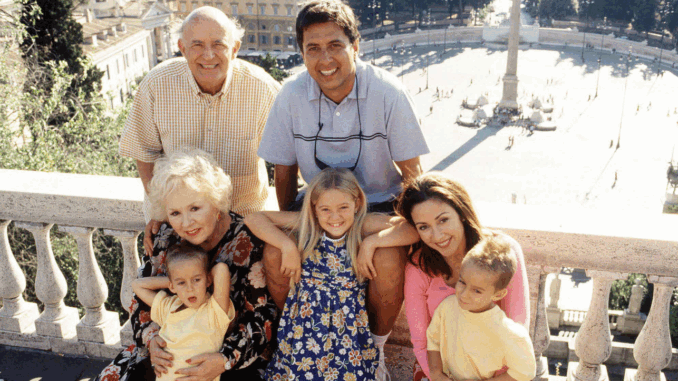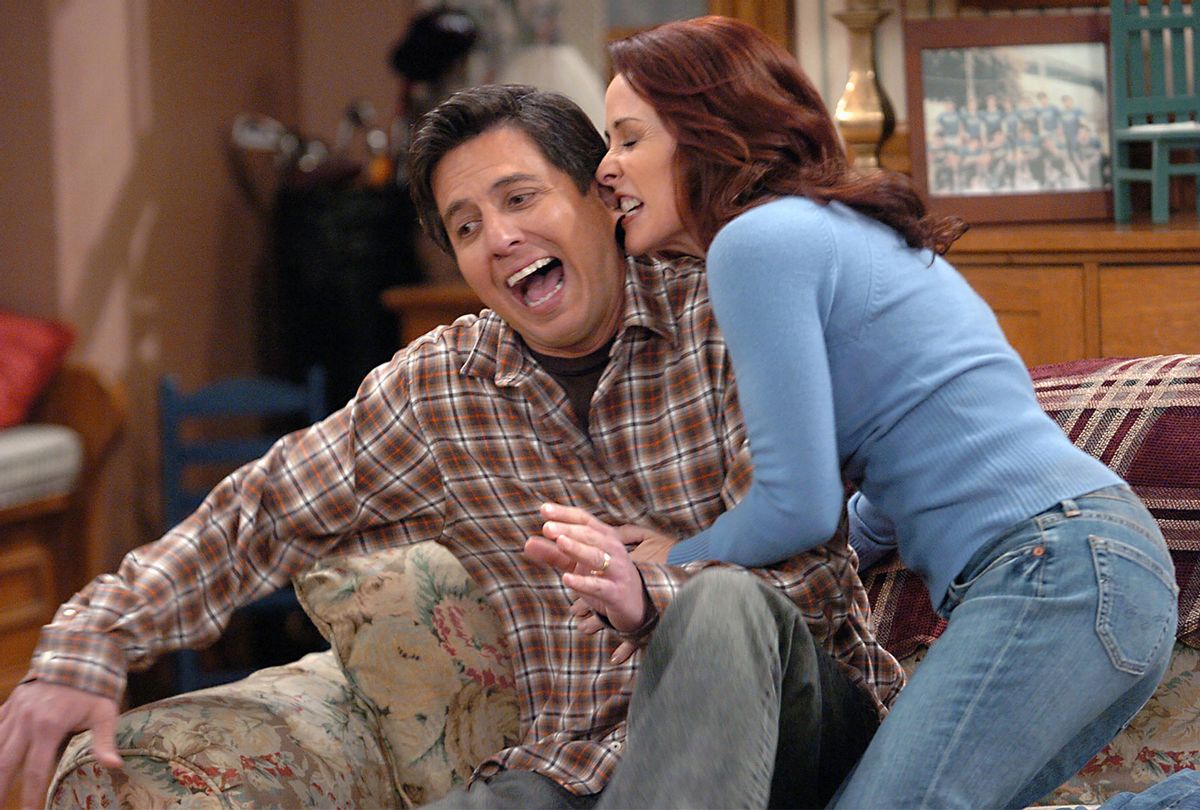
The agony of rewatching “Everybody Loves Raymond” reminds me of my family’s damaging dysfunction
Most people watch “Everyone Loves Raymond” and smile. As I binged the beloved sitcom in anticipation of its 25th anniversary on Sept. 13, I cried.
Over the course of nine seasons, studio audiences laughed, while I watched the patterns of my highly dysfunctional family being played out scene by scene.
In one episode, Ray Barone (Ray Romano) and his brother Robert (Brad Garrett) argue in the back of a car on their way to play golf. The grown men punch, push and hurl insults like children.
“It’s like you said: Mom loves me more,” Ray says.

“She can love you all you want because I love her more than you do,” Robert retorts. “You take her for granted. I cherish every ounce of affection that woman gives me because I have to fight for it like a dirty dog on the street.”
Well said, Robert, I thought, as tears welled, watching the essence of my upbringing play out onscreen.
Parental favoritism, also known as parental differential treatment occurs when one or both parents consistently favor one child over another.
All parents have a favorite child, Psychologist Ellen Weber Libby, author of “The Favorite Child: How A Favorite Impacts Families for Life,” argues, because they are human, and humans have preferences. Parents may love their children equally, but when children perceive consistent unbalanced treatment, heightened sibling rivalry and emotional damage often follow. Libby says favored children often feel entitled and later struggle as adults because they no longer feel special. A non-favored child can suffer low self-esteem and experience depression. I certainly have.
For most of my life, as I watched my parents shower my brother with love and favor, I asked myself, “Why aren’t I good enough? How come my parents love me less?”
Want a daily wrap-up of all the news and commentary Salon has to offer? Subscribe to our morning newsletter, Crash Course.
Like Robert, I was labeled the black sheep of the family. Ray and my brother were granted golden boy status. As a result, Robert and I were stuck in the quagmire that is sibling rivalry, always striving to earn parental love and attention.
For as long as I lived at home, I would smile and greet my father expectantly at the door when he came home, just like a dog. I hoped he would ask me how my day went, simply acknowledge my existence. He rarely gave me so much as a smile.
There are many photos of my father and brother smiling together. In some, my brother wears a cowboy outfit or space suit, costumes that were purchased especially for the photos. In others, our dad cradles my brother in his arms, their faces inches apart as they gaze at a star atop a Christmas tree. I took many of these photos. In later years, my brother would invite me to be in the photos. Not a single Christmas photo exists of my father and me alone.
On my first day of high school, my mother declared, “We won’t pay for your college because we need to save for your brother’s medical school.” My brother was only a high school junior, but my parents were already hell-bent on supporting him financially and emotionally to become a doctor. I threw myself into my studies, determined and desperate to earn an academic scholarship so that I could live on a college campus. After missing out on football games and dances throughout high school, I finally attended a graduation party. I could finally breathe because I graduated as valedictorian of my class and would soon attend a work-study college where I earned enough money to pay tuition, room and board.
Initially, I thought my parents favored my brother because they subscribed to traditional Chinese beliefs that boys were more valuable than girls. They believed their son would carry on the family name, take care of them in their old age — like all good Chinese sons. This cultural preference for boys resulted in millions of Chinese female infants being aborted, killed or discarded when the country’s One-Child policy was in effect from 1980-2016.
Yet, I didn’t see other Chinese-American parents relegating their daughters to a lower rung.
Parental favoritism sometimes arises because one child is easy or displays traits and interests that a parent identifies positively with.
In the TV show, Marie personifies this because she thought she was more cultured than her husband Frank (Peter Boyle) and encouraged Ray to apply his artistic talents to writing fiction.
When Marie compliments Ray, Robert would often declare bitterly, “Everyone loves Raymond.”
